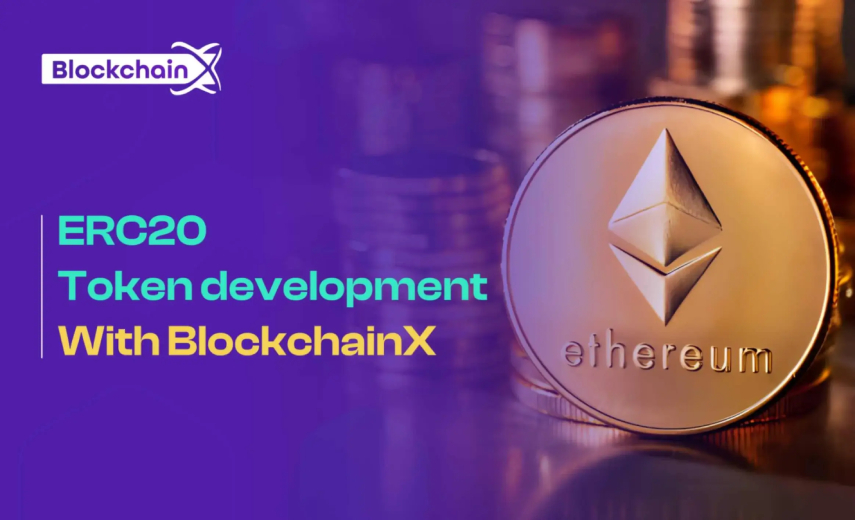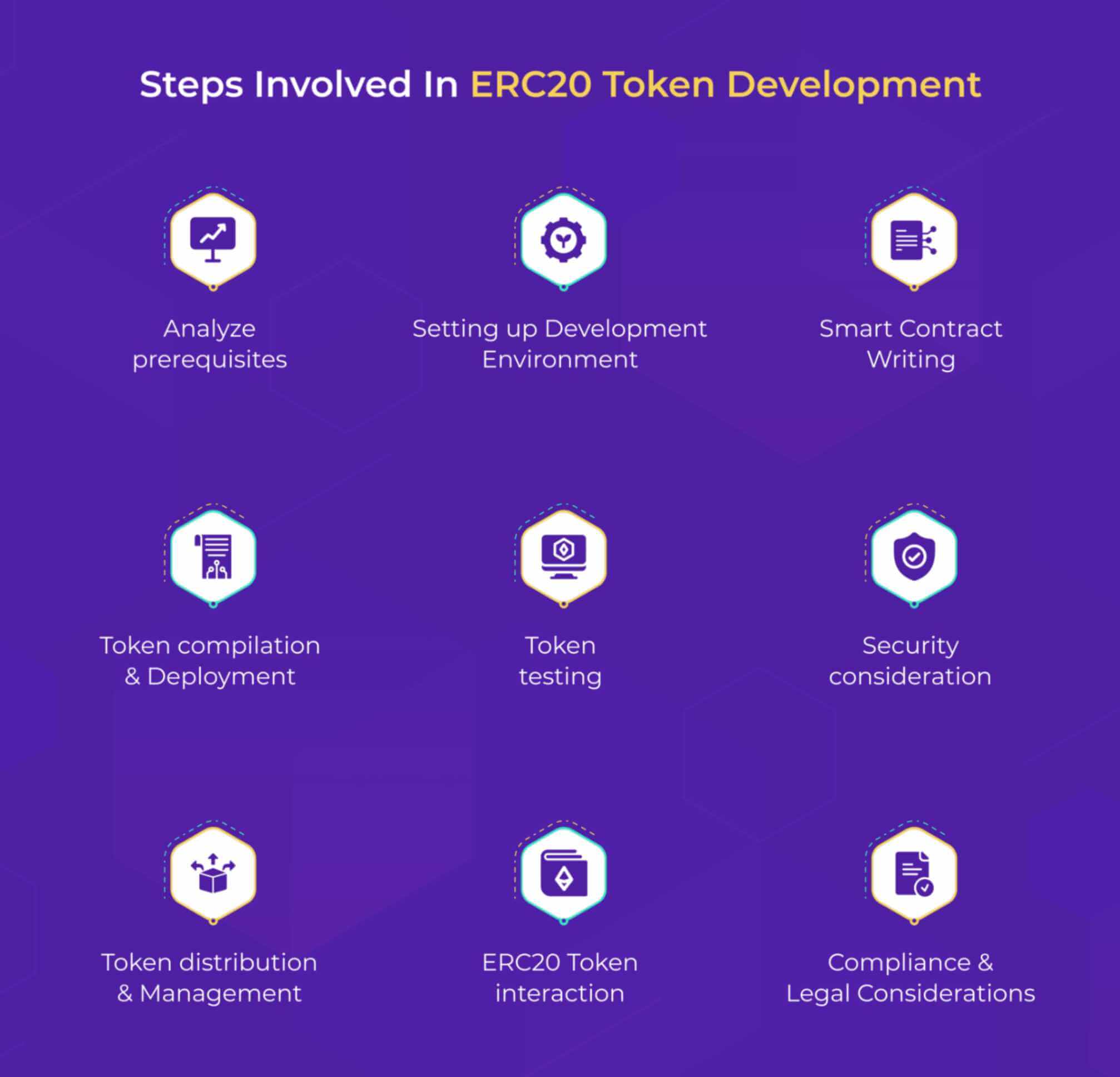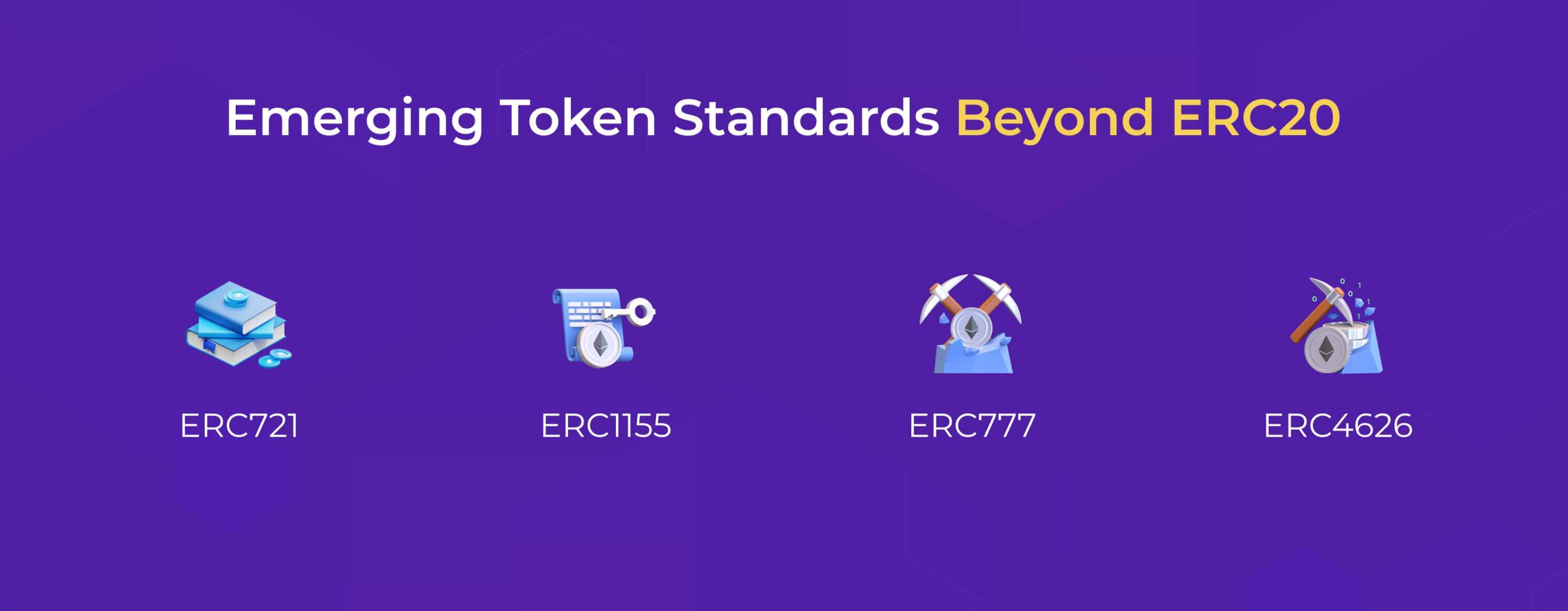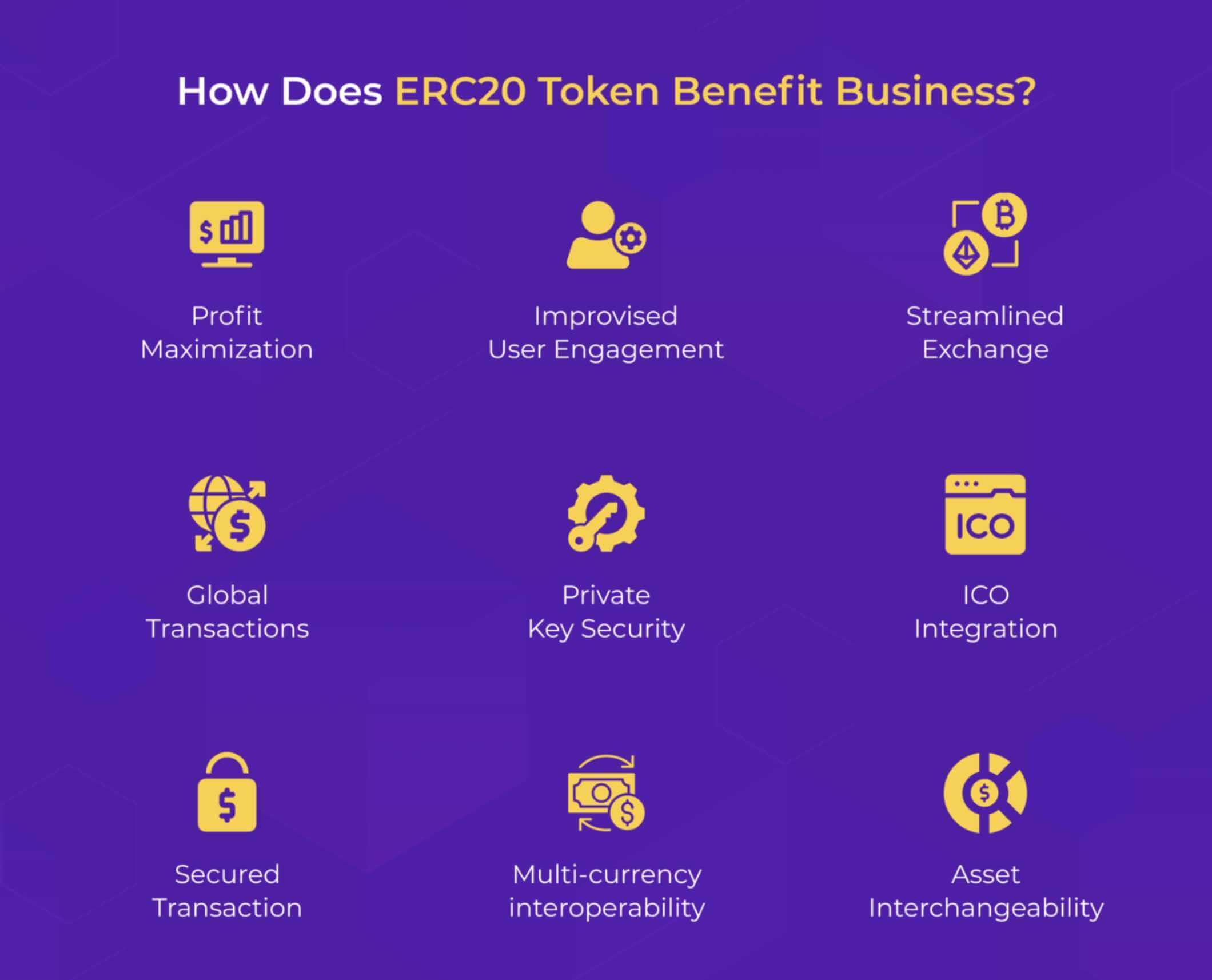Table of Contents

Complete Guide For ERC20 Token Development
Listen to the Audio :
In 2015, Fabian Vogelstellar created the ERC20 token standard which was a quick pick and gained instant popularity in the market. Its ability to interact with and communicate with the Ethereum community by 2017, became common among Initial Coin offerings and had become a standard to use ERC20 for issuing tokens.
Amplifying the growth meter of your operations, maximizing ease of function, and yielding better revenue. Let us here discuss revolutionizing ERC20 token standard, its reasons for its popularity, and how to create ERC20 token for businesses.
What is ERC20 token standard?
ERC20 of the Ethereum network can be elaborated as an Ethereum Request for Comment (ERC), and 20 is the identifier number.
ERC20 is an ideal and significant standard that emerged for writing smart contracts on the network and is prominently used for token implementations. It has the potential to create and manage tokens and make them compatible with various decentralized applications.
Compiling a set of rules and guidelines, the ERC20 token standard is defined to operate and function on the Ethereum Network. This provides an interface for developers to create and interact with tokens, making it easy for the tokens to interact and act compatible with each other.
The standard includes methods to transact, transfer tokens, inquire about token balances, approve token transfers, and more. Being the most widely adopted token standard, it can create countless tokens and use them for various purposes, including crowdfunding, voting, digital asset representation, and more. Here are the main features of ERC20 Tokens.
Fungibility: Each token is indistinguishable from the others. They are free to exchange without any distinction in value.
Divisibility: The ERC20 tokens are versatile and adaptable and can be divided into smaller units based on transaction size.
Transferability: The tokens can be seamlessly sent and received between different wallets on the Ethereum network, therefore easing peer-to-peer transactions.
ERC20 token features led to the rapid expansion of ERC in the token economy and spotted growth with the DeFi application. The rise in demand is amplifying and is expected to grow more over the years. Therefore playing a crucial role in the issuance and integration of the Ethereum ecosystem.
Now let's dive into How to create ERC20 token, a detailed explanation of the token development process that is more likely to scale up your business.

Steps Involved in ERC20 Token Development
Understand the Prerequisites for ERC20 Token Development
Firstly, it's important to understand the Ethereum blockchain and its performance in general. Getting a clear picture of the fundamentals of Ethereum, its workings, architecture, market standards, and role as a decentralized setting can give a wider picture of its possibilities.
Doing proper market research on the niche of your business and its opportunities with the ERC20 token can lead to perfect pitching.
Have a basic knowledge on Solidity, the programming language that is used to write smart contracts.
Also being aware of familiar development tools like Truffle and Remix provides ease in the development phase, and also during testing and asset pipelining in the network.
Set up a development environment
Reaching out to an experienced ERC20 token developer can be an ideal choice, as there will be no trial and error; instead, the actual process happens on the go.
Choosing an experienced developer who customizes your token based on your business requirements can help with actual operations.
Ensure they configure the Ethereum development environment. A complete setup typically involves Truffles working for Ethereum and other specified network configurations, setting accounts for deployment, and interacting with smart contracts.
Write a smart contract
The next step involved in creating the ERC20 token is smart contract coding, which is the fundamental part that defines the functions of the token.
Solidity knowledge is a must to strategically approach ERC20 token development. Understanding the syntax, data types, and control structures is important for writing a complete package of codes for smart contracts that are bug-free.
To implement certain functions in your ERC token, smart contracts play a crucial role. They initiate approval, transfer, and create ERC-20-compliant tokens.
Compile and deploy
The solidity code that is used in ERC20 token development needs to be compiled into bytecode before deploying Ethereum.
Solc is used to compile Solidity code into bytecode.
After compiling, the smart contract is now all ready to deploy into the Ethereum blockchain using Truffle or Remix. The deployment process includes having specific bytecode and constructor arguments and paying gas fees to execute the token deployment.
Now the smart contract is all set to interact with tokens using Ethereum wallets or command-line tools.
Testing an ERC20 token
The next important phase of ERC20 token development is token testing to ensure smart contracts behave as expected and lock down vulnerabilities.
Through comprehensive testing, it is easy to identify, fix bugs, and deploy error-free smart contracts on the mainnet.
To test individual functions and components of smart contracts, unit tests are done. It ensures functions are intended to behave under different scenarios.
To run automated tests on smart contracts, the Truffle framework is used. It helps developers stimulate smart contract interaction and extract outcomes as expected.
Consider security requirements
To be safe from reentrancy attacks, integer overflow or underflow, unauthorized token transfers, and more ERC20 tokens need to be secured from these threats. It is essential to write effective codes.
Kickstart with understanding the vulnerabilities and writing secured and safe contracts.
Bring up validations, access control, and safe arithmetic, which are best practices to mitigate risk factors in the ERC20 token.
Experts auditing smart contracts can bring the maximum vulnerabilities to light and can help in working to ensure best practices before deployment.
Token distribution and management
From Initial coin offerings, and airdrops to token sales, there should be a strategic approach in token distribution. There are advantages and disadvantages to bringing up any strategy. Understanding and considering other factors matters a lot while attaining project goals and reaching the target audience effectively.
Smart contracts can automate token sales and distribution, and they typically include functions accepting contributions, allocation, and management of tokens based on schedules.
After token distribution is done, the management and distribution involve much monitoring to strike a balance, process transactions, and implement a token mechanism for burning and minting in need.
Interacting with the ERC20 token
The ERC20 tokens can be used through Metamask, MyEtherWallet, and Trust Wallet to send, receive, store, and manage. The user, by using these wallets, interacts with the ERC20 token, and their wallet address is very important to be protected.
Integrating ERC20 tokens with decentralized apps serves various purposes, like in-app purchases, rewards, or governance mechanisms.
ERC20 tokens can also interact in DEX, which enables users to trade ERC tokens directly from Etheruem Wallets and swap peer-to-peer tokens using the liquidity pools with the help of an automated market management algorithm.
Compliance and Legal Considerations
Whether in token sales or a token offering, they are subject to regulatory scrutiny and jurisdiction. Developers need to understand and comply with relevant securities laws, regulations, etc.
The token requires different compliance data; therefore, it requires certain checks, like knowing your customer, restricting token sales, and providing adequate disclosure to investors.
It also required seeking legal counsel from expert families within blockchain and security laws to navigate the complex regulatory landscape and ensure compliance with the regulation.

Features of ERC20 Token Development
Authorized accounts can mint additional ERC20 tokens for supply.
The token holders can use their extension to burn and eliminate crypto tokens on the chain.
The accounts with authorization can pause the token mechanism.
The extension also provides permission to authorize third-party transfer crypto, but by incurring a gas fee.
The voting mechanism is entrusted to trusted accounts and is tailored for the DeFi ecosystem that traces historical balances.
Flash mining is a built-in flash loan mechanism used to lend without collateral but with a condition to repay the same.
Authorized accounts capture and store snapshots of balance for later retrieval.
All these features are general for ERC20 token development, making it versatile, sophisticated, and functional. The ERC20 token is not just an extension for your business; it opens up avenues to distinguish and compete in the crypto landscape. Positioning this array of features while you create ERC20 token opens up space to amplify your strategic approaches that carve out exclusive opportunities in the realm of cryptocurrency.
Attractive Aspects of ERC20 Token Development
Become the go-to choice for developers. The importance and popularity of the ERC20 standard have skyrocketed in recent years. Entrepreneurs who are looking to launch their Token sales or build decentralized finance (DeFi) applications started to reply on ERC20. Its global acceptance and compatibility across various platforms and wallets facilitated the smooth integration of tokens into the existing blockchain infrastructure.
The ERC20 token is simple and easy to deploy.
Solves significant problems like communicating through a standard set of commands to communicate with different ranges of tokens. handling different token interactions, purchases, rules, and more.
The very popular specification itself became an industry standard in a short period.
Moreover, the transparency and security offered by ERC20 tokens have instilled trust among investors and users. Further, as it fuels adoption and continues to evolve, the ERC20 standard will remain a cornerstone in the development and growth of the decentralized economy.

Advantages of ERC20 Token Development
Almost every industry is adopting decentralized finances. ERC20 token standards stand out for their undeniable abilities that have a nature to adopt based on industry and use case.
Transaction efficiency
Making transactions and attaining global reach is quick, easy, and efficient.
Simple creation
The entry barriers are comparatively low for Ethereum 20 tokens; you can simply create them.
Streamlined interactions
ERC20 tokens have comparatively less complexity in terms of token interactions.
Contract Reliability
The chance of contract breaking is low, ensuring a stable and secure environment.
Improved Liquidity
Token liquidity is ignited, ensuring seamless trading.
Revenue Streaming
Potential to generate high revenue with widespread use cases and familiarity.
There is a wide range of benefits to choosing to create an ERC20 token for your business. It encompasses various advantages tangled in its traits and is simultaneously flexible enough to adapt to new requirements. Therefore, making the ERC20 token more versatile and highly preferred in almost every sector amplifies and serves diverse purposes as a robust solution.
What Now? Start Your ERC20 Token Development With Us
With versatile opportunities and innovation fancying Ethereum networks, along with the potential impact of Ethereum 2.0, the network is looking for a more scalable, secure, and sustainable solution. The new consensus mechanism ensures a reduction in energy consumption and increased network efficiency. The network strikes to stand ahead of others in the market.
With all the information you gathered regarding ERC20 token development, don't delay! Get started with your development process now! With significant performance improvement, the Ethereum network has more perks and is the perfect choice to say, “No more delay; step ahead with ERC20 token development."
BlockchainX renders exponential service in crafting and creating your ERC20 token as you desire. As an ERC20 token development company, we have years of experience and an openness to learning new things. We are here to provide customized, secure, and transparent solutions.





